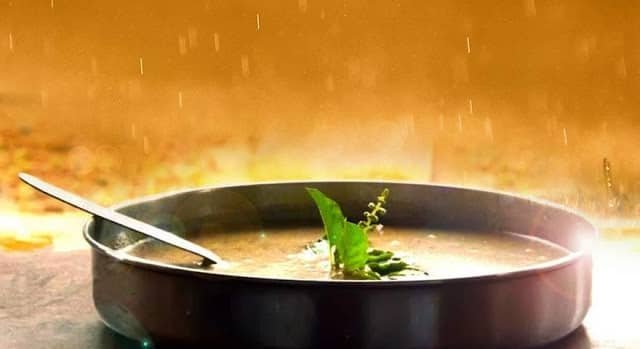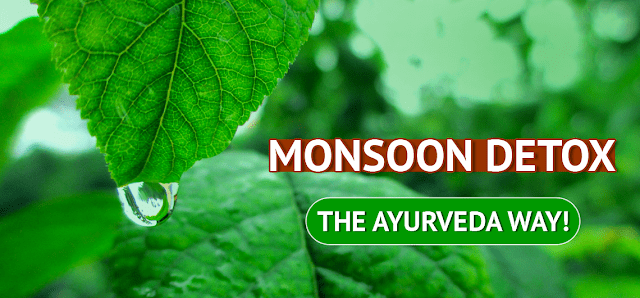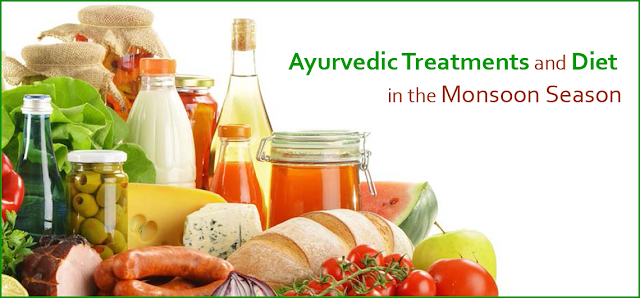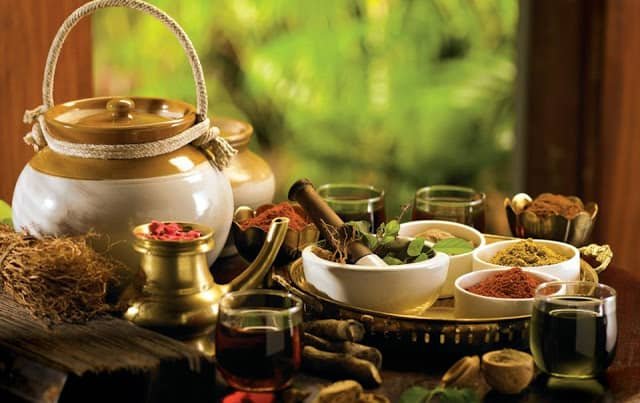Monsoon is a season of romance. The cool breeze and damp smell of the earth after a long roasting summer turn the mind ecstatic. Jumping in the puddles, dancing in the rain, going for a long drive etc add to the pleasure. However, it continues to remains so until an individual holds good health as rainy season brings a plethora of diseases along with. It has been observed that there is an increased occurrence of air and water-borne diseases in the rainy season.
1. Ritu (Season) and
2. Charya (Regimen or routine to be followed).

Monsoon season is categorized as Varsha Ritu in Ayurvedic texts. It ranges from the month of Shravana toBhadrapada (Mid July to Mid September) and denotes the onset of Visarga Kala or Dakshinayana or Southern Solstice. During this season, the sky is covered by clouds and rains occur without the thunderstorm. The ponds, rivers, etc are filled with water.
Ayurveda describes the aggravation of Vata and accumulation of Pitta in Varsha Ritu. Constant raining, moisture in the atmosphere and cold weather results in aggravation of Vata which was accumulated during the dry and dehydrating heat of the summer; while Pitta accumulates following the conducive acidic conditions of the atmosphere as the predominant Rasa is Amla (sour) and Prithvi and Agni are predominant Mahabhutas in the rainy season.
According to Ayurveda, Agni is responsible for the digestive & metabolic activities of the body. During monsoon, the digestive fire or Agni weakens, leaving digestive system most vulnerable to various ailments. Diet thus followed during this season should balance the vitiated doshas and stimulate Agni to perform proper digestion.
Monsoon is the time when body’s immunity drops, thus proper care should be taken to prevent possible illnesses like general debility, blood and skin related problems, pain and swelling of joints, ringworm, fever, malaria, dysentery etc. In addition, other virus and bacteria related diseases may also emerge.
Here are few simple guidelines recommended by Ayurveda that should be followed during the monsoon season. By following these dos and don’ts, you’ll be able to celebrate the monsoons without fearing its adverse impact –
LIFESTYLE MODIFICATIONS
PANCHAKARMA
Note: Article is Originally Written by Dr VD Singh and Author can be reachable at https://drsinghspeaks.blogspot.com/
Views: 5







